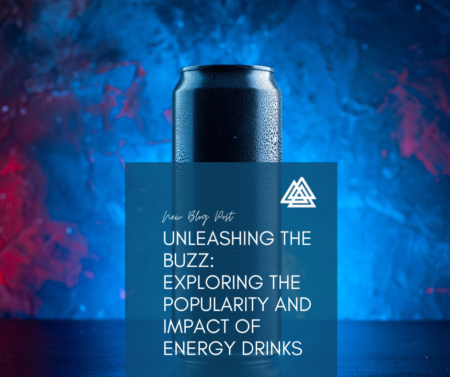 In a world that never seems to slow down, the demand for quick and convenient sources of energy has skyrocketed. Enter energy drinks—colorful, caffeinated concoctions that promise to boost alertness, enhance performance, and keep fatigue at bay. Their popularity is undeniable, but so are the questions about their safety and long-term effects. Let’s delve into the allure of energy drinks, their impact on health, and the broader societal implications.
In a world that never seems to slow down, the demand for quick and convenient sources of energy has skyrocketed. Enter energy drinks—colorful, caffeinated concoctions that promise to boost alertness, enhance performance, and keep fatigue at bay. Their popularity is undeniable, but so are the questions about their safety and long-term effects. Let’s delve into the allure of energy drinks, their impact on health, and the broader societal implications.
The Rise of Energy Drinks
Energy drinks have become a staple for many, from busy professionals to college students pulling all-nighters. The energy drink market has grown exponentially over the past few decades, driven by several factors:
- Busy Lifestyles: With increasing work demands and hectic schedules, people are constantly seeking quick ways to boost their energy and stay productive.
- Marketing and Branding: Eye-catching packaging, clever advertising, and endorsements by celebrities and athletes have made energy drinks highly appealing, especially to younger demographics.
- Convenience: Energy drinks are portable and readily available at convenience stores, supermarkets, and even vending machines, making them an easy go-to for an energy boost.
- Variety: The wide range of flavors, ingredients, and formulations cater to diverse tastes and preferences, attracting a broad consumer base.
What’s Inside an Energy Drink?
Understanding what’s in an energy drink is crucial to assessing its impact. Common ingredients include:
- Caffeine: The primary stimulant, often ranging from 70 to 240 mg per can, depending on the brand.
- Sugar: Provides a quick source of energy, though sugar-free options are also available.
- Taurine: An amino acid that may support neurological development and regulate water and mineral levels in the blood.
- B Vitamins: These vitamins help convert food into energy and are often included to enhance the drink’s energizing effects.
- Herbal Extracts: Ingredients like ginseng, guarana, and ginkgo biloba are believed to enhance mental performance and endurance.
The Impact on Health
While energy drinks can provide a temporary boost, their health effects are a topic of ongoing debate and research. Here are some potential impacts:
- Short-Term Effects:
- Increased Alertness: The caffeine content can improve focus and concentration.
- Enhanced Physical Performance: Some studies suggest that energy drinks can improve endurance and reaction time.
- Negative Side Effects:
- Heart Issues: Excessive caffeine can lead to heart palpitations, increased heart rate, and high blood pressure.
- Sleep Disruptions: Consuming energy drinks late in the day can interfere with sleep patterns, leading to insomnia.
- Jitters and Anxiety: High doses of caffeine can cause nervousness and anxiety in some individuals.
- Sugar Content: High sugar levels can contribute to weight gain, diabetes, and dental problems.
- Long-Term Concerns:
- Dependence: Regular consumption can lead to caffeine dependence, resulting in withdrawal symptoms like headaches and fatigue.
- Potential for Misuse: Mixing energy drinks with alcohol is a dangerous trend, as it can mask the depressant effects of alcohol, leading to excessive drinking and increased risk of alcohol poisoning.
Societal Implications
The popularity of energy drinks has broader implications for society, particularly concerning public health and marketing practices:
- Targeting Youth: The marketing of energy drinks to teenagers and young adults raises concerns about their influence on young, impressionable consumers. There is a growing call for stricter regulations to protect minors from excessive caffeine intake.
- Regulatory Scrutiny: As evidence of potential health risks accumulates, some countries have implemented regulations on the sale and marketing of energy drinks. These include restrictions on caffeine content, mandatory warning labels, and bans on sales to minors.
- Workplace Culture: The reliance on energy drinks in high-stress, high-performance environments may reflect broader issues with workplace culture and the demands placed on employees. This raises questions about the sustainability of such practices and the need for healthier alternatives to manage workload and stress.
Energy drinks have become an integral part of modern life, offering a quick fix for fatigue and a boost in performance. However, their widespread popularity comes with a range of health and societal implications that cannot be ignored. As consumers, it’s essential to be informed about the potential risks and to consume energy drinks in moderation. Balancing the benefits with the possible adverse effects can help us make healthier choices in our quest for energy and productivity.
